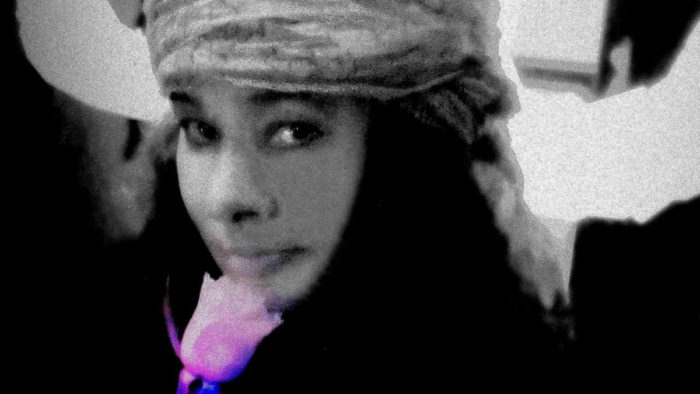Apparently, there will be no official musical event this summer to mark the 50th anniversary of the legendary Woodstock festival. However, we were lucky enough to be at Goodstock, an intimate venue in Kitasenzoku, for a performance by the legendary Carmen Maki, this year celebrating her 50th year in the music business.
Backed by acoustic guitar, percussion and bass, Carmen ran through a variety of original numbers and covers, including her own funked-up arrangement of Carole King’s Will You Still Love Me Tomorrow and the Japanese language version of Gerry Goffin’s It’s Not the Spotlight, first recorded by the late Maki Asakawa.
Carmen Maki and Maki Asakawa both broke through to public prominence in 1969 with albums of songs penned by Shuji Terayama. Both continued to feature Terayama material all through their careers.
Indeed, Carmen, who had recently participated in a Maki Asakawa tribute event, also performed for us the Terayama murder ballad Kamome (“Seagull”), which is the song for which Maki Asakawa is best known.
Carmen has just published a “mook” (magazine-book) of song lyrics and gorgeous photos. You can get hold of it here. The introductory notes, by the long dead Terayama, communicate the mystique that she held for him.
Maki has no hometown
Maki came from the sea
A wild seventeen year old angel
A girl who writes poetry
She is the idol of Tenjo Sajiki*
Nobody knows Maki’s real name
*Terayama’s experimental theatre troupe
Both Carmen and Terayama were brought up by single mothers – who were themselves often absent – with little or no memory of their fathers. Deracination and self-invention were common themes. Terayama liked to fictionalize his biography. He sometimes claimed that he was born aboard a moving train, thus having no hometown, and that his father had been executed as a war-criminal, rather than having died of illness in South East Asia.
Carmen was a true “déraciné” (the title of her latest song collection), linguistically a Japanese monoglot, but of uncertain nationality and complex ethnic background. She did eventually take Japanese citizenship in 1993.
In her early years as a hippy chanteuse, the lyrics for most of her songs were written specifically for her by Terayama, with a few by Shuntaro Tanikawa, Japan’s pre-eminent contemporary poet. When, after the revelatory experience of hearing a Janis Joplin album, she moved on to hard rock, she started writing them herself.
It was in February 1969, at the tender age of 17, that Carmen released the Terayama-penned million-seller Toki niwa haha no nai ko no yo ni (“Sometimes I Feel Like a Motherless Child”).
The album from which it is taken is called Poems at Midnight: until the candle goes out.
Fifty years later, the candle still burns.
.

